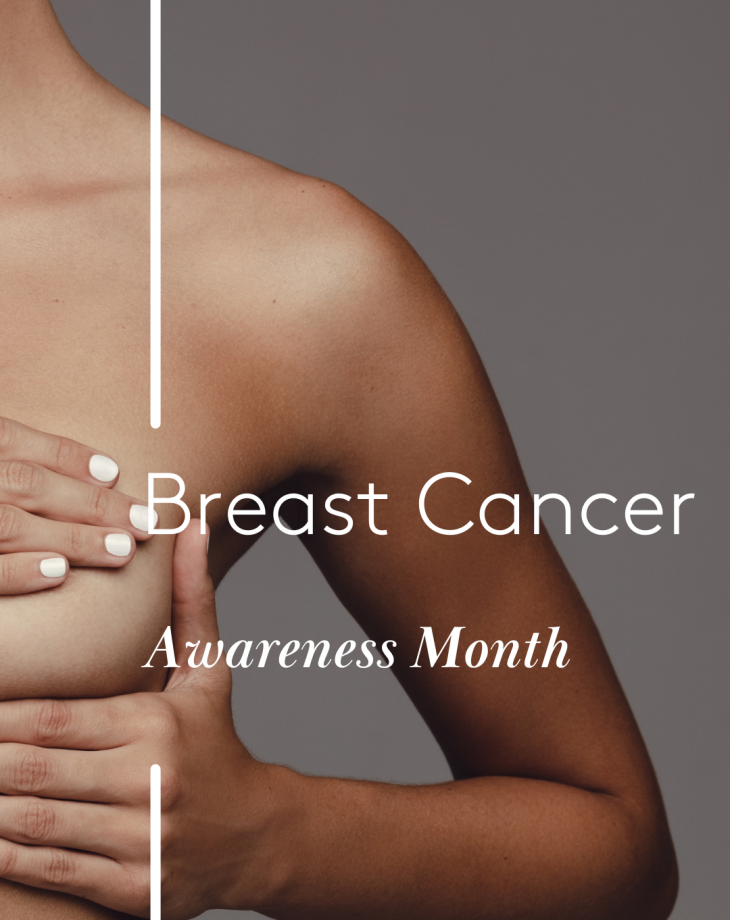Breast cancer is one of the most prevalent forms of cancer worldwide, affecting both men and women. October is recognised as Breast Cancer Awareness Month, dedicated to raising awareness about the importance of early detection, prevention, and support for those impacted by this disease. While genetics play a role in breast cancer risk, lifestyle factors, including nutrition and a healthy lifestyle, can significantly influence its development. This article explores the relationship between breast cancer awareness, nutrition, nutrigenetics, and adopting a healthy lifestyle.
Breast Cancer Awareness and Early Detection
Breast cancer awareness involves educating individuals about the signs, symptoms, and risk factors associated with this disease. Promoting regular breast self-exams and mammograms can lead to early detection, improving the chances of successful treatment. Awareness campaigns, such as the pink ribbon initiative, help reduce the stigma surrounding breast cancer and encourage open dialogue.
Nutrition and Breast Cancer Risk
Research has shown that diet plays a vital role in breast cancer prevention. A well-balanced diet rich in fruits, vegetables, whole grains, lean proteins, and healthy fats can help reduce the risk of breast cancer. Antioxidants found in colourful fruits and vegetables, such as beta-carotene and vitamins C and E, may help protect against cancer by neutralising harmful free radicals.
Cruciferous vegetables like broccoli, cauliflower, and kale contain compounds like sulforaphane, which have been associated with decreased cancer risk. Fibre-rich foods, like beans and whole grains, can help regulate hormones linked to breast cancer, such as oestrogen. Omega-3 fatty acids found in fish and flaxseeds have anti-inflammatory properties that may also lower breast cancer risk.
Nutrigenetics and Personalised Nutrition
Nutrigenetics explores how an individual's genetic makeup interacts with their diet, affecting their health and disease risk. Genetic variations can influence how our bodies metabolise nutrients and respond to specific foods. Understanding nutrigenetics can help tailor dietary recommendations to your unique genetic profile, optimising yourhealth.
- For instance, some individuals may have genetic variants that affect their ability to process folate, a B-vitamin crucial for DNA repair.
- Variations in genes related to caffeine metabolism can determine how coffee consumption influences breast cancer risk.
By identifying these genetic factors, individuals can make informed dietary choices that suit their genetic predispositions.
Adopting a Healthy Lifestyle
A healthy lifestyle encompasses various factors beyond nutrition that can impact breast cancer risk. These include:
- Physical Activity: Regular exercise not only helps maintain a healthy weight but also reduces the risk of breast cancer. Physical activity helps regulate hormone levels and boost the immune system.
- Alcohol Consumption: Limiting alcohol intake is crucial, as excessive alcohol consumption has been linked to an increased risk of breast cancer. Moderation is key.
- Smoking Cessation: Smoking is a known risk factor for various cancers, including breast cancer. Quitting smoking can significantly reduce cancer risk and improve overall health.
- Stress Management: Chronic stress can weaken the immune system and negatively impact health. Techniques such as mindfulness, meditation, and yoga can help manage stress levels.
In Conclusion
Breast cancer awareness is essential for early detection and support for those affected by the disease. While genetics play a role in breast cancer risk, adopting a healthy lifestyle and personalised nutrition based on nutrigenetics can significantly reduce the likelihood of developing breast cancer. A balanced diet, regular physical activity, limited alcohol consumption, and stress management are all integral components of a healthy lifestyle that can contribute to breast cancer prevention. By integrating these practices into our lives, we can promote breast cancer awareness and strive for a healthier, cancer-free future.
Keen to learn more? Get in touch and we can discuss genetic testing and a personal nutrition programme.
References:
American Cancer Society. (2021). Breast Cancer Facts & Figures 2021-2022. https://www.cancer.org/content/dam/cancer-org/research/cancer-facts-and-statistics/breast-cancer-facts-and-figures/breast-cancer-facts-and-figures-2021-2022.pdf
World Cancer Research Fund/American Institute for Cancer Research. (2018). Diet, Nutrition, Physical Activity, and Cancer: A Global Perspective. https://www.wcrf.org/wp-content/uploads/2021/02/Summary-of-third-expert-report-2018.pdf
Kushi, L. H., Doyle, C., McCullough, M., Rock, C. L., Demark-Wahnefried, W., Bandera, E. V., Gapstur, S., Patel, A. V., Andrews, K., & Gansler, T. (2012). American Cancer Society Guidelines on Nutrition and Physical Activity for Cancer Prevention: Reducing the Risk of Cancer with Healthy Food Choices and Physical Activity. CA: A Cancer Journal for Clinicians, 62(1), 30-67. doi:10.3322/caac.20140:10.3322/caac.20140

